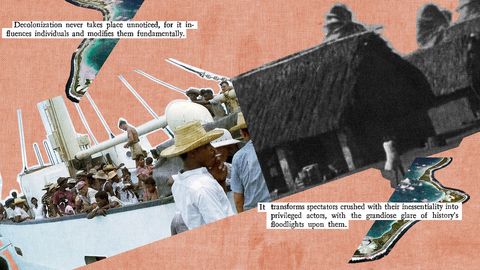
Mahzoom: Malé deserves better
"Discussion alone has not produced solutions, and it never will."
18 hours ago
Support independent journalism

Ramadan cheat sheet: schedules, services and prices
A guide to modified routines for the fasting month.
18 Feb, 12:37

RTI data reveals scale of student payment problems ministry says it cannot fully count
Over 100 complaints logged, but no figures on actual payment delays.
17 Feb, 16:03

Dr Hassan Hameed on his life's work: an English-Dhivehi dictionary eight years in the making
"Language can limit what can be thought and expressed."
16 Feb, 15:00

President champions climate adaptation abroad as dredgers blanket atoll in sediment
Dive sites abandoned, bait grounds destroyed as plume engulfs Malé atoll.
12 Feb, 17:15

Maldives Independent






































